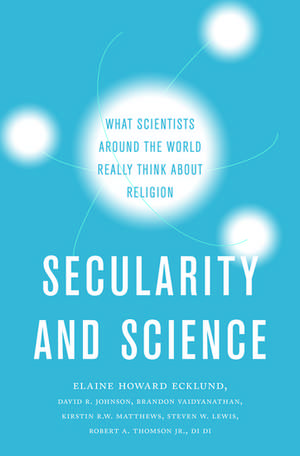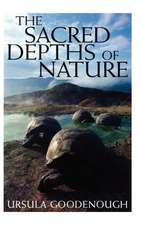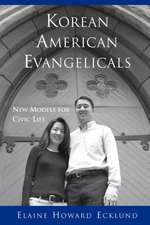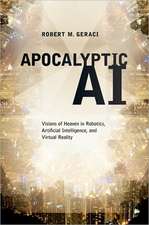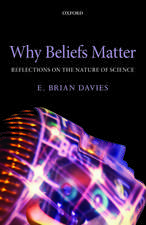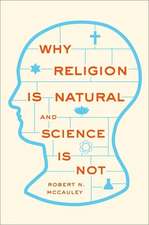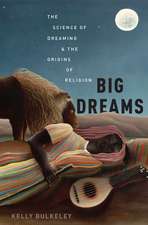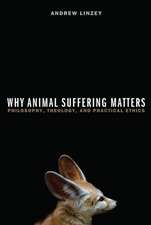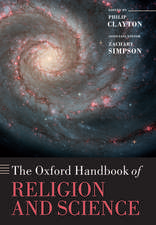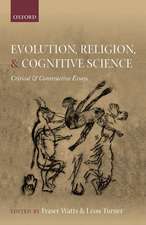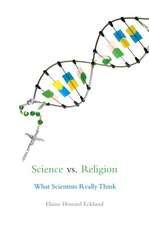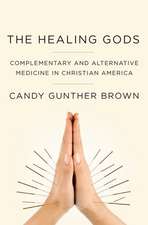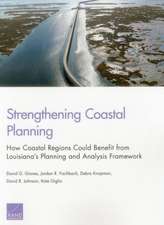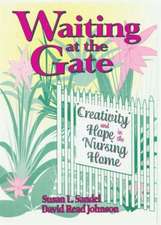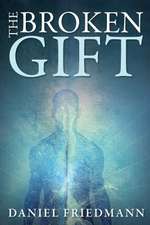Secularity and Science: What Scientists Around the World Really Think About Religion
Autor Elaine Howard Ecklund, David R. Johnson, Brandon Vaidyanathan, Kirstin R.W. Matthews, Steven W. Lewis, Robert A. Thomson, Di Dien Limba Engleză Hardback – 29 aug 2019
Preț: 184.88 lei
Preț vechi: 199.02 lei
-7% Nou
Puncte Express: 277
Preț estimativ în valută:
35.38€ • 37.03$ • 29.44£
35.38€ • 37.03$ • 29.44£
Carte disponibilă
Livrare economică 27 februarie-05 martie
Preluare comenzi: 021 569.72.76
Specificații
ISBN-13: 9780190926755
ISBN-10: 0190926759
Pagini: 352
Ilustrații: 35
Dimensiuni: 160 x 236 x 28 mm
Greutate: 0.66 kg
Editura: Oxford University Press
Colecția OUP USA
Locul publicării:New York, United States
ISBN-10: 0190926759
Pagini: 352
Ilustrații: 35
Dimensiuni: 160 x 236 x 28 mm
Greutate: 0.66 kg
Editura: Oxford University Press
Colecția OUP USA
Locul publicării:New York, United States
Recenzii
excellent
The book does not assume any specialist knowledge and is very accessibly written, with helpful summaries offered throughout. This style coupled with an impressive amount of rigorously collected data means it should appeal to a very wide range of audiences.
The authors do an excellent job of describing the broad contours of science and religion in each region they study...
This is undoubtedly the most comprehensive study of scientists' religiosity, and their beliefs about the relation between science and religion, ever conducted. The researchers are to be applauded for the scope of their study and the accessibility of its presentation. Secularity and Science will serve as a valuable resource to those interested in how religion features in the lives of scientists around the world, and a useful jumping-off point for future studies in a similar vein. It is yet another large-scale social study of science and religion which demonstrates the complex, culturally and geographically specific nature of their multiple relationships in contemporary societies.
This fascinating and uniquely informative study is thus likely to have a major influence on the field of the sociology of science and religion, thanks both to its findings and what it leaves out. It will no doubt inspire many new studies on individual cases as well as comparative works, and in this respect, marks the beginning of a new stage in the scholarship on science and religion in contemporary societies.
the survey gives a rich picture of the field in a variety of cultural contexts, and is well worth close study.
This well-written and highly readable book is based on the most comprehensive study of scientists in very different social and cultural contexts, including Western countries and Chinese societies. The survey findings provide an overview of the contrast between scientists and the general population in regard to religion in each society, and the in-depth interviews with scientists provide nuanced understanding of their views and their distinct social and cultural contexts. Among many takeaways, it is interesting to see that from the West to the East, most contemporary scientists do not perceive religion and science in conflict.
The book does not assume any specialist knowledge and is very accessibly written, with helpful summaries offered throughout. This style coupled with an impressive amount of rigorously collected data means it should appeal to a very wide range of audiences.
The authors do an excellent job of describing the broad contours of science and religion in each region they study...
This is undoubtedly the most comprehensive study of scientists' religiosity, and their beliefs about the relation between science and religion, ever conducted. The researchers are to be applauded for the scope of their study and the accessibility of its presentation. Secularity and Science will serve as a valuable resource to those interested in how religion features in the lives of scientists around the world, and a useful jumping-off point for future studies in a similar vein. It is yet another large-scale social study of science and religion which demonstrates the complex, culturally and geographically specific nature of their multiple relationships in contemporary societies.
This fascinating and uniquely informative study is thus likely to have a major influence on the field of the sociology of science and religion, thanks both to its findings and what it leaves out. It will no doubt inspire many new studies on individual cases as well as comparative works, and in this respect, marks the beginning of a new stage in the scholarship on science and religion in contemporary societies.
the survey gives a rich picture of the field in a variety of cultural contexts, and is well worth close study.
This well-written and highly readable book is based on the most comprehensive study of scientists in very different social and cultural contexts, including Western countries and Chinese societies. The survey findings provide an overview of the contrast between scientists and the general population in regard to religion in each society, and the in-depth interviews with scientists provide nuanced understanding of their views and their distinct social and cultural contexts. Among many takeaways, it is interesting to see that from the West to the East, most contemporary scientists do not perceive religion and science in conflict.
Notă biografică
Elaine Howard Ecklund is Herbert S. Autrey Chair in Social Sciences at Rice University. David R. Johnson is Assistant Professor of Educational Leadership at University of Nevada, Reno. Brandon Vaidyanathan is Associate Professor of Sociology at The Catholic University of America. Kirstin R.W. Matthews is Fellow in Science and Technology Policy at the Baker Institute for Public Policy at Rice University. Steven W. Lewis is C.V. Starr Transnational China Fellow at the Baker Institute for Public Policy at Rice University. Robert A. Thomson Jr. is Assistant Professor of Sociology at University of Alabama in HuntsvilleDi Di is an Assistant Professor of Sociology at Santa Clara University
